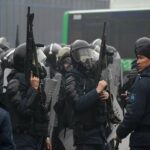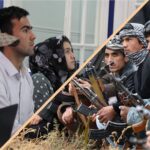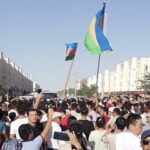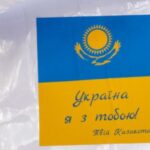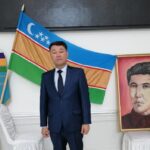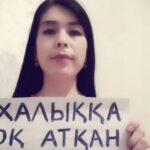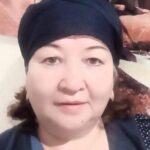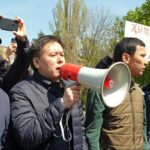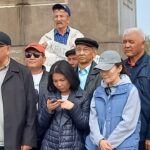Appeal
to President Nursultan Nazarbayev, President of the Republic of Kazakhstan
Dear
President Nazarabev,
At the opening of
the new session of Kazakhstan’s parliament on 2 September 2013, you set out the
task of modernizing the country’s criminal justice system and ensuring that national
legislation in this area is of a “high standard” and provides for “impeccable” protection
of the rights and freedoms of citizens. However, the new Criminal, Criminal
Procedure and Criminal Executive Codes, as well as the new Code on
Administrative Offenses adopted by the parliament seriously restrict human
rights in violation of Kazakhstan’s Constitution and international agreements
ratified by the country.
Provisions that run
contrary to article 23 of the Constitution, which guarantees the right to
freedom of association:
●The new Criminal Code
introduces the concept of a “leader of a public association” as a particular
category of offender. This is a discriminatory approach that may result
in the persecution of any members and activists of public associations who are
arbitrarily deemed to be “leaders” of their organizations.
● Given the
lack of clear and unambiguous definitions of the terms used in the new Criminal
Code provision prohibiting “unlawful interference in the activities of state agencies
by members of public associations,” this provision will leave room for unscrupulous
officials to interpret fair requests presented by members of public
associations as unlawful interference in their activities, which will undermine
public oversight of authorities in the country.
● The new Criminal
Code provisions targeted against public associations are not in conformity with
the Constitution or universally accepted human rights principles, including in particular the
principle of legal clarity and predictability and the principle of non-discrimination.
They depict public associations as a “particularly dangerous” type of legal
entity and will contribute to stifling criticism of the authorities.
●The new provision of the Code on
Administrative Offences on “violating the legislation on public associations”
allows for suspending and even terminating the activities of a public
association for minor violations of a technical nature, as well as for
penalizing a public association for carrying out lawful activities that have
not been spelled out in its statutes. This provision gives rise to particular
concern with respect to religious communities.
Provisions that run contrary to article 22 of
the Constitution, which guarantees the right to freedom of conscience, as well
as article 39 of the Constitution, which prohibits limitations of this right
under all circumstances:
● Existing
Kazakhstani legislation makes the right of an individual to profess a religion in
community with others dependent on having dozen, hundreds of even thousands of
fellow believers (as required for registration of religious communities). The
sanctions foreseen in this regard under the new Code on Administrative Offenses
violate the principle that penalties should be fair and proportionate to the
offenses committed, which is likely to generate an increase in the protest mood
in society
Provisions that run
contrary to article 20 of the Constitution, which guarantees the rights to
freedom of expression and creativity:
●The new Criminal Code extends the grounds
for prosecution for defamation and retains sanctions of up to three years in
prison. As previously, it also provides for special protection against
defamation for high-ranking officials. Moreover, a new provision on perjury has
been introduced and provides for punishment of up to ten years in prison. The
wording of this provision does not exclude the possibility that an individual
may be held accountable for expressing opinions, views and beliefs. These
provisions contradict Kazakhstan’s treaty obligations under the International
Covenant on Civil and Political Rights, as well as recommendations made in the
context of the Universal Periodic Review.
● The Code on Administrative
Offenses retains excessive sanctions in the form of the suspension and closure
of media outlets for violations of a technical nature.
Provisions that run contrary to article 16 of
the Constitution, which guarantees the right to liberty of person:
● The provisions of the new Criminal
Procedure Code fail to grant detainees the right to have prompt and unhindered access to a
court to contest the lawfulness of their detention as required by international
standards.
● In a number of respects, the position of
individuals sentenced to imprisonment will deteriorate significantly in
comparison with existing criminal procedure legislation.
● The new Criminal Procedure
Code retains the previous inconsistency between a provision that grants
individuals who have been detained on suspicion of involvement in crimes the
right to immediately and personally notify their relatives and a provision that
grants investigators powers to notify relatives within a period of up to 12
hours. As previously, the prosecutor’s office, in its capacity as supervisory
body, does not have to be notified immediately about the detention of an
individual but only within 12 hours from the moment the arrest has been
registered. The new Code does not guarantee the right of detainees to notify their
lawyers at the moment of their detention, and the right to have access to legal
defense is only ensured after detainees have been formally informed that they
are considered suspects, i.e. not earlier than three hours after the actual
apprehension.
Provisions that run
contrary to article 17 of the Constitution, which states that no one should be
subjected to torture, violence or other treatment and
punishment that is cruel or degrading to human dignity:
● According to
the new Criminal Procedure Code, allegations of torture made by participants in
criminal justice processes are not considered as allegations of crimes but
rather as “complaints against the actions and decisions of individuals in
charge of pre-trial investigation.” The new legislation does not provide for
any independent mechanism for investigating torture allegations.
The issues outlined
above are only part of the shortcomings of the new legal codes identified by
civil society representatives. During all stages of the elaboration of these
codes, civil society representatives have been engaged in efforts to bring the
provisions of the codes into compliance with the Constitution and international
human rights law, as well as best foreign and international practice with
regard to the protection of human rights. However, most of the arguments and
recommendations presented have been ignored.
In view of this, we
call on you as the guarantor of Kazakhstan’s Constitution and the rights and
freedoms of citizens to:
1. Veto the new
Criminal, Criminal Procedure and Criminal Executive Codes, as well as
the new Code on Administrative Offenses adopted by the parliament;
2.
Ensure that law enforcement bodies guided by narrow interests and
aspirations to avoid public control of their activities are not involved in the
elaboration of new draft legal codes; and to
3. Ensure
that new draft legal codes are subject to national level expert reviews, as
well as reviews by international expert bodies such as the Venice Commission
with respect to the compliance of the draft laws with international treaties
ratified by Kazakhstan, in accordance with article 4 of the Constitution.
The appeal has been signed by the following NGOs and individuals:
1. The International
Foundation for Freedom of Expression “Adil Soz”
2. Kazakhstan
International Bureau for Human Rights and Rule of Law
3. The Public
Fund “Human Rights Charter”
4. The Public Fund “International
Law Initiative”
5. The Public Fund for
the Development of Parliamentarism in Kazakhstan
6. The Public Fund
“Aman-Saulik”
7. The Center for
Research of Legal Policies
8. The
Association of Religious Communities of Kazakhstan
9. The Union
of Crisis Centers in Kazakhstan
10. The Public
Association Echo
11. The
International Center for Not-for-Profit Law
12. The Public
Fund “Legal Media Center”
13. The Public
Fund “Ulagatti Xanya”
14. The Fund
“Tilshi”
15. The Fund
“Journalists in Trouble”
16. The
Pensioner Movement
“Generation”
17. The National Social Democratic Party
18. The International Legal Initiative
19. Tazabek Sambetay, the youth branch of
the National Social Democratic Party
20. The “Miracle” Center for the Social Adaptation
of Orphans and Graduates from Orphanages
21. Rauf Sabitov, chairman of the Mountain
Club “Zhabagly-Manas”
22. Saule Seyhakhmetov, “Elim-ay” (city of Zhezkazgan)
23. The Institute of National and
International Development Initiatives
24. Ayur Kurmanov, chairman of “Talmas”,
vice chairman of the Republican Labour Union “Zhanarty”
25. Asiya Kaliyeva, “Public Position
(Almaty)
26. Tatyana Khatyokhina, regional director
of the Center for Human Rights in the Sogdh region of Tajikistan
27. N.A. Yantsen, “Formation of Tax
Culture”
28. Kyzylorda regional branch of the
International Association “Kazakh Language”
29. The editorial staff of the newspaper
“Language Guard”
30. Dimitry Tereshkevich,President of the
Citizens Assembly of Astana
31. The International Journalist Center
MediaNet
32. Kizatova Tokzhan, “Demos” (Atyrau)
33. Asel Nurgazieva, “Zaman” (Atyrau)
34. Natalia Ivaskevich, “Megapolis”
(Atyrau)
35. E.E. Romanov, chairman of the Center
for Child and Youth Creativity
36. The Fund of Local Communities in the
Enbekshikazakh district
37. M.A. Nistolin, chairman of the Center
for Rehabilitation of the North Kazakh Region
38. N.G. Romanov, chairman of the “Arch”
Center for Supporting Craft
39. Igor Kolov, chairman of the Public
Human Rights Committee
40. Mukhtar Umbetov, Independent Trade
Unions of the Mangistau Region
41. Aleksey Bozhkov, editor of the Agency
of Legal Information and Journalistic Research “Hero”
42. Sergey Solyanik, consultant with Crude
Accountability
43. Lyudmila Petrova, director of “Angel”
44. The Center of Economic and Civil
Education “Intellect”
45. Baktigul Kanatov, vice chairman of
“Zhanirak”
46. Andrey Busikin, member of the World
Commission on Protected Areas and the International Union for the Conservation
of Nature
47. Meryert Makhmutova, director of the
Center for Analysis of Social Problems
48. Lyudmila Kurtavseva, vice director of
“Reflection” (Temirtau)
49. Sverlana Mogilyok, chairman of “Ekom”
50. Alima Abdirova, director of “Ary Aana”
(Aktobe)
51. The Public Fund “People’s
Anti-Corruption Committee”
52. Ardak Khanabilova, “Ksonk”
53. Bakhit Aluay, chairman of Human Rights
Mission
54. Bayrkhat Zhakarbekuli, president of “A
United Nation”
55. Reporters Without Borders
56. Rozlana Taukina, chief editor of the
newspaper “People’s Word”
57. The Order for the Protection of the
Objectivity of Journalism “Forpost”
58. Eduard Pak, executive director of the
Center for Electoral Culture
59. Tatyana Zinovich, deputy director of
The Center for Research of Legal Policies
60. Timur Gafurov, deputy chief editor of
the daily “Pur Newspaper (Kostanay)
61. Dilnar Insenova, the Movement for
Homeless and Landless
62. Evgeniya Kozyreva, Feministic League
63. Bakytzhan Oyshiyev, chairman of the
Center for Fair Social Journalism” and deputy chief editor of the newspaper
“Zhambyl Taraz”
64. Nazgul Suleymenova, chief editor of
the regional social-political newspaper “North Kazakhstan”
65. Viktor Miroshnichenko, reporter with
“Vremya” (Astana)
66. Zaure Zhumalieva, president of the
“Adil Arch” Fund
67. Saule Akpantayeva, “Adil Arch” Fund
68. Yelena Getmanova, chief editor of the
newspaper “Diapazon”
69. Lukpan Akhmedyarov,chief editor of the
newspaper “Uralskaya Nedelya”
70. Kaydar Kairzhanov, head of «Metrocom
Service»
71. Snezhanna Kim, lawyer with the
Kostanya regional bar
72. Tatyana Chernobyl, lawyer and
independent consultant on international human rights law
73. Gulnar Esirgenova, human rights
defender
74. Marzhan Aspandyarova, human rights
defender
75. Marina Vasileeva, Journalist (Aktobe)
76. Sergey Chechulin, engineer at “Katsinkmash”
77. Arzgul
Tillyabaeva (Almaty)
78. Kayrat
Baltabay, journalist
79. Max Bokaev, citizen journalist (Atyrau)
80. Mukametzhan Sebit Maymakuly
81. Maymak Kenzhegul Sebitkyzy
82. Mukametzhan Bibygul Sebitkyzy
83. Sergey Florov, sociologist
84. Albin Rymzhanov
85. Bakhitnur Otarbaeva
86. Arzgul Tillyabaeva
87. Ayan Zharipbaev
88. Kenzhe Adenov
89. Nurbulat Satagulov
90. Oksama Makushina, journalist
91. I.V. Trishina, engineer
92. Zhollan Tuleulova, Aktabau Regional Philharmonic
Orchestra
93. Zhanna Baytelova, journalist, Almaty
94. International Partnership for Human
Rights (Belgium)
95.Zhasaran Kyanyshalin, “Zhasa Azzatyk!”
96. Asia Kaliyeva, president of the
“Public Position”
97. Svetlana Kovlyagina, chairman of the
Committee for Monitoring Criminal Reform and Human Rights
98. Oleksandra Matveichuk and
Aleksandra Novichkova, Center for Civil Liberties (Ukraine)
(Украина)
99. The Norwegian Helsinki Committee
100. Gaziz Aldamzharov
101. Natalya Balashova, editor of the
economic department of the newspaper “North Kazakhstan”
102. Yulia Maldina, correspondent at the
newspaper “North Kazakhstan”
103. Yevgeniya Ivanova, correspondent at
the newspaper “Kvartal” (Petropavlovsk)
104. Aleksey Simonov, president of the
Glasnost Defence Foundation (Moscow)
105. Asia Kaliyeva, president of “Public
Position”
106. Aina Dolgova, chairman of board of
the Unification Church
107. Esenbek Ukteshbaev, chairman of “Let’s
leave accommodation for the people!”
108. Musaffar Babaev, lawyer and human
rights defender
109. Gabbas Kabyshuly, writer and laureate
of the international literary award “Alash”
110. Marianna Gurina, president of
“Ulagatty Zhanya”
111. The organization “Journalists” (Kyrgyzstan)
112. Zhanara Balgabaeva, lawyer at
“Zhanyrak”
113. The Public Fund “Center for Social
Analysis and Partnership”
114. The Confederation of Free Trade Unions
of Kazakhstan
115. Alexandra Kim, journalist and head of
“Freedom”
116. The Research Center “Sandzh”
117. The Media Service Center (Shymkent)
118. The Public Information Center “Open
World”
119. Obraz Alimbekov,
journalist
120. Anatoly Ivanov,
journalist
121. Madya Torebaeva, journalist
122.The organization ”The last hope”
123. The Public Fund “Nota Bene”
(Tajikistan)
124. Helsinki Citizens’ Assembly –
Vanadzor (Armenia)
125. The Center for Civil Liberties
(Ukraine)
126. The Human Rights Group “Citizens,
Army, Rights” (Russia)
127. The organization “Health of Children”
128. The organization “Civil Defence”
129. The organization “Female beam”
130. Sharip Kurakbay, independent
journalist
131. Erzhan Oralbekov, independent
journalist
132. The ARGO Association for the
Development of Civil Society
133. Pavel Shumkin, miner, Karaganda
134. Lev Guzikov, chief editor of the
newspaper “Ready Solutions”
135. Ilmira
Turegeldina
136. Rushan Nasyrova,
medical worker
137. Orazbek Shyngys
138. R.E. Moldybaeva,
pensioneer
139. Almagul Aykan
140. Gulbagidash
Abdrahmanova
141. Alya Bukaeva
142. Ar Namys
143. Kharkiv
Regional Foundation “Public Alternative” (Ukraine)
144. Tungat Erlan
Amyrtayuly, lawyer
145. Gulmira
Abdrakhmanova
146. The organization “Ulagat Asyl Ayna”
147. Alosher Sikhanov, builder
148. Dayana Mansurova, lawyer
149. Vladimir Dolgov, director of the
International Fund for Education
150. Sergey Mauletbay, journalist
151. Andrey Sviridov, journalist, historian
in the area of Kazakh media and public ideas
152. Apsen Abdrakhamov, “Assbasservice”
153. Yuri
Dzibladze, Center
for the Development of Democracy and Human Rights (Russia)
154. Moscow Helsinki Group (Russia)
155. Analytical
Center for Interethnic Cooperation and Consultations (Georgia)
156. Human
Rights Movement “Bir Duino Kyrgyzstan”
157. Armenian Human Rights Committee
158. Center for
Social Action (Ukraine)
159. Human
Rights Center of Azerbaijan
160. Kosova
Rehabilitation Center for Torture Victims
161. Public
Verdict Foundation (Russia)
162. Nasyrov Raymbek, graduate student
163. Gulnara Karakulova, director of the
Women’s Resource Center
164. Marat Dauletbaev, “Baikonur for Civil
Rights”
165. Bayan Egizbaev, chairman of the Center
of Problems of Young People (Kyzylorda)
166. Tulegen Kasenov, chairman of “Fate of
Nation – Akmola”
167. Sergey Molchanov, Director of
“Doctors against Drugs”
168. Almas
Kyrmanbetov
169. Aida Kasenova
170. “Eco Center” (Karaganda
regional ecological center)
171. “A United Nation” (“Ult birligi”)
172. Human Rights Mission



